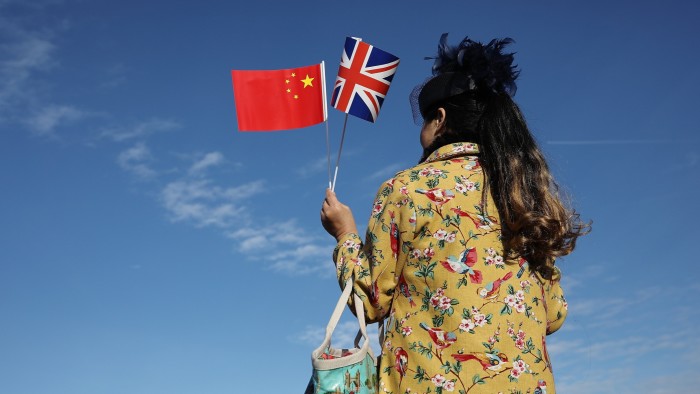Why Labour will struggle to reset the UK-China relationship

This article is an on-site version of our Inside Politics newsletter. Subscribers can sign up here to get the newsletter delivered every weekday. If you’re not a subscriber, you can still receive the newsletter free for 30 days
Good morning. Keir Starmer will become the first British prime minister since Theresa May to have face-to-face talks with Xi Jinping today. But the new government’s attempt to reset relations with China now has one very big Trump-sized headache. It also faces others closer to home. Some thoughts on those in today’s note.
Inside Politics is edited by Harvey Nriapia today. Read the previous edition of the newsletter here. Please send gossip, thoughts and feedback to [email protected]
Great walls
By any measure, the UK’s China policy since 2016 has been a failure. The shift away from the Cameron-Osborne “golden era” has come at a cost to foreign direct investment. We are still dependent on China for aspects of the green transition: it is still a world leader in solar panels, nuclear power, electric vehicles and much else besides. The UK’s influence on what the Chinese government does internally is negligible. China continues to be an indispensable and powerful ally to Vladimir Putin’s Russia.
Several years ago, when the Conservative party’s Sinosceptics were beginning to organise against then chancellor Rishi Sunak, one of his allies complained that many in the party and at Westminster more broadly seemed to think that “waving a finger and saying ‘That won’t do!’” would shift policy. In the end that achieved remarkably little.
That’s the big policy argument for the new government’s changed approach on China: the old one wasn’t working, and a government “focused on growth”, which has an ambitious target on renewable energy, has to reset things.
But there are two important constraints, both dating back to Boris Johnson’s premiership, even before you get to the question of whether the government will have to choose between repairing ties with China or maintaining them with the US.
The first was the offer of citizenship rights to 2.9mn Hongkongers in the summer of 2020. This will remain a source of potential political friction, given it implies that a fair amount of organised opposition to the Chinese Communist party exists in the UK. One area of focus for MI5, according to its director-general, is “disrupting attempts at harming or coercing people, where often we’re protecting people of Chinese heritage”.
The second is Aukus — the 2021 security pact between Australia, the UK and the US. Both undertakings put pressure on the UK-China relationship, and mean that the Starmer-era relationship with China will look more like the Sunak-era one than that of Cameron, whatever the new government may wish.
Now try this
The highlight for me of the London Jazz Festival so far has been Emma Rawicz at Kings Place. It was a marvellous tribute and reimagining of some of Wayne Shorter’s work, and her palpable enthusiasm at being there only added to a lovely evening. You can listen to her two records here and here. And you can see every single one of the pieces of music I’ve recommended in this newsletter here, in case you ever want the musical answer to “what could have possessed him to write this?!”
Top stories today
Recommended newsletters for you
White House Watch — Your essential guide to what the 2024 election means for Washington and the world. Sign up here
One Must-Read — Remarkable journalism you won’t want to miss. Sign up here
#Labour #struggle #reset #UKChina #relationship





